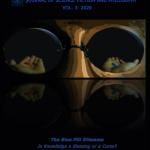It’s an iconic song and arguably one of the most recognizable there is. It is hard to even know what genre to place it in. Yet I never thought about its theology until prompted to do so by a couple of things about the song coming to my attention in close succession, all responding to a video about the making of the song and how it came to be. As this article in Open Culture explains:
Byrne developed [the lyrics] as he “sat down and listened to televangelist sermons, pulling phrases from them and crafting them into lyrics.” Put together, “the song creates a trancelike state, capturing the manic monotony of middle-class existence” with both its captivatingly repetitive music (played by the band members acting as “human samplers”) and its words, as Byrne himself interprets them, “about the unconscious, about how we operate half-awake on autopilot.”
If you Google the phrase “once in a lifetime” together with the keyword “theology,” very little from among the results has anything to do with the song by the Talking Heads. But at least one is. Michael Ondrick, an MDiv student and Princeton Theological Seminary, has made a comparison between going to seminary and that song’s lyrics. Theological exploration (when done right) is all about challenging ourselves to get out of the mode of autopilot, to ask questions about our way of life and the things we take for granted. And that’s precisely what the song is about.
Well, How Did We Get Here? A Brief History of the Talking Heads
Of related interest: Reading Religion has a review of the book Mortality and Music, and New Humanist explores why there is so much preaching in British pop.













